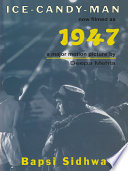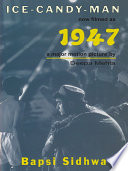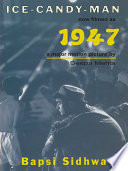Discover our guide that looks at Pakistan’s rich and varied history with the best Pakistani authors and their most acclaimed novels.
Pakistan did not officially become a nation until 1947, but it has a long and storied literary tradition. Its modern incarnation has roots in Urdu and Persian literature and is deeply influenced by English literature and the history of British colonialism. Today, Pakistani literature draws from nearly all of the country’s 77 established languages, as well as its diverse cultural traditions.
Modern Pakistani literature often focuses on immigration effects and both geographical and cultural displacement. Other common themes include women’s and children’s treatment, deeply entrenched class and feudal systems, and issues related to religious and ethnic disagreements.
Contemporary writers strive to put a human face on daily news by creating fictional characters who grapple with real-world events. Seeing these events through their characters’ eyes allows readers to better understand Pakistani society’s complexities. In 2025, as global discussions about migration, identity, and cultural preservation intensify, Pakistani authors continue offering vital perspectives on these universal human experiences.
For more recommendations, you might also enjoy exploring best adventure books, best David Sedaris books, or authors like Bill Bryson.
Must-Read Pakistani Authors: Explore Pakistan’s Culture
1. Bapsi Sidhwa, 1938 -
Bapsi Sidhwa was two years old when she contracted polio and nine years old when her country was divided into two nations: Hindu-majority India and Muslim-majority Pakistan. This event sparked one of human history’s largest and most violent migrations, leaving a deep impression on young Sidhwa. This experience inspired her most popular novel, Ice Candy Man.
Because of illness, Sidhwa was educated at home until age 15. She then earned her bachelor’s degree from Kinnaird College for Women in Lahore and married at 19. Sidhwa endured numerous rejections of her first two novels before self-publishing and becoming an internationally acclaimed writer. She has since taught English and writing at several universities, including Brandeis, Columbia, and Mt. Holyoke.
Ice Candy Man, also published as Cracking India, recounts the 1947 India Partition through the eyes of its young protagonist, Lenny. Lenny is a happy little girl growing up in Lahore who, because she has polio, studies at home with her beautiful young nanny, Ayah. From Ayah, Lenny learns about the religious differences driving India’s political turmoil. When Ayah is kidnapped, however, the violence becomes personal for Lenny and her family.
Sidhwa’s work remains profoundly relevant in 2025 as the world continues grappling with partition’s lasting effects and the ongoing refugee crises that echo those historical displacements.
“There is much disturbing talk. India is going to be broken. Can one break a country? And what happens if they break it where our house is?”
Bapsi Sidhwa, Ice Candy Man
2. Mohammed Hanif, 1964 -
As a young child, Mohammed Hanif recalls the magic of being surrounded by stories. Mothers and grandmothers improvised bedtime tales, street salespeople drew in customers with anecdotes, and professional storytellers regaled party guests with thrilling yarns. It’s not surprising that when he graduated as a pilot from Pakistan Airforce Academy, Hanif decided to pursue writing rather than a military career.
Hanif has been a correspondent for the BBC and The New York Times for several years. He has also published with the Washington Post, India Today, and The New Yorker. In addition to his journalism, Hanif has written four books, two plays, and the screenplay for the feature film The Long Night. He is working on an opera in collaboration with American composer Mohammed Fairouz.
Hanif’s debut novel, A Case of Exploding Mangoes, is based on an actual event: the plane crash that killed Pakistan’s controversial president, General Zia, in 1988. At the time, numerous conspiracy theories emerged about what might have caused the crash. Here, Hanif imagines the event as the culmination of cover-up, religious zealotry, family loyalty, and revenge.
His satirical approach to political power and corruption continues resonating in 2025’s global political climate, where questions about authoritarian leadership and institutional accountability remain pressing worldwide.
“He is an innocent in the way that lonesome canaries are innocent, flitting from one branch to another, the tender flutter of their wings and a few milliliters of blood keeping them airborne against the gravity of this world that wants to pull everyone down to its rotting surface.”
Mohammed Hanif, A Case of Exploding Mangoes
3. Daniyal Mueenuddin, 1963 -
Daniyal Mueenuddin spent his first 13 years living in Lahore with his Pakistani father and American mother. When they divorced, he moved to the United States with his mother and was sent to finish schooling at prestigious Groton Prep School in Massachusetts. He then graduated magna cum laude from Dartmouth.
The summer after graduating college, Mueenuddin returned to Pakistan to help his ailing father run his mango farm. There he spent early mornings writing poetry and evenings reading through books his mother had left behind. When his father died, Mueenuddin moved back to the states and earned a law degree from Yale. However, he found practicing law unfulfilling and began cultivating the love of writing he had discovered while working on his father’s farm.
Mueenuddin’s debut novel, In Other Rooms, Other Wonders, was a finalist for the National Book Award and the Pulitzer Prize. In this sometimes humorous, often tragic tale, Mueenuddin gives readers a glimpse of Pakistan’s crumbling feudal system and the intricate connections between landowners and their servants.
His exploration of class dynamics and economic inequality speaks directly to 2025’s ongoing global conversations about wealth disparity and social justice, making his rural Pakistani stories universally relevant.
“Her father became a heroin addict and died of it, her mother slept around for money and favors, and she herself at fourteen became the plaything of a small landowner’s son…These experiences had not cracked her hard skin, but made her sensual, unscrupulous—and romantic.”
Daniyal Mueenuddin, In Other Rooms, Other Wonders
4. Tehmina Durrani, 1953 -
Tehmina Durrani was born into one of Pakistan’s most highly regarded aristocratic families. At 17, she was married and had one child before divorcing. Shortly afterward, she married prominent and influential politician Mustafah Khar. She suffered 14 years of his abuse in silence before finally divorcing him and exposing his actions in her controversial memoir, My Feudal Lord.
After leaving her husband, Durrani dedicated herself to fighting for women’s and children’s rights in Pakistan. She has worked closely with female acid attack victims and founded the Tehmina Durrani Foundation to support women’s and children’s issues. Her third husband, Shehbaz Sharif, currently serves as Pakistan’s 23rd Prime Minister, making her the country’s First Lady.
Durrani’s shocking account of her husband’s abuse, My Feudal Lord, was an instant success but came at great personal cost. Her family disowned her for 13 years after the book’s release, and owing to her “betrayal,” she lost all financial support from her ex-husband and custody of her children. The book has since been translated into 40 languages and won countless international literary awards.
Her courage in speaking out against domestic violence continues inspiring women’s rights advocates globally in 2025, as the #MeToo movement and related activism maintain momentum worldwide.
“The lesson was clear and I learned it well: blind acquiescence was necessary to gain approval; being yourself only earned condemnation.”
Tehmina Durrani, My Feudal Lord
5. Kamila Shamsie, 1973 -
Kamila Shamsie was born in Karachi to a well-off family of scholars. Her mother, great-aunt, and grandmother were all celebrated writers, so her love of language was encouraged from a very young age. When Shamsie graduated high school, she was accepted into a university exchange program, allowing her to earn her undergraduate degree in creative writing from Hamilton College, then an MFA at the University of Massachusetts Amherst.
Shamsie completed her first novel in college and has written eight more. She has won the Prime Minister’s Award for Literature in Pakistan and has been named one of the BBC’s “100 Women.” Her writing style is intellectual yet approachable, and her work is regularly translated into several languages.
Home Fire, Shamsie’s most widely known novel, was shortlisted for the Man Booker Prize, was a finalist for The International Dublin Literary Award, and won the 2018 Prize for Women’s Fiction. It is the suspenseful, tragic story of an immigrant family that must face devastating odds and goes to great lengths to protect themselves and their loved ones.
Her exploration of radicalization, family loyalty, and the immigrant experience speaks directly to 2025’s ongoing debates about terrorism, integration, and national security, making her work essential reading for understanding contemporary global tensions.
“Grief was what you owed the dead for the necessary crime of living on without them.”
Kamila Shamsie, Home Fire
6. Mohsin Hamid, 1971 -
Though born in Pakistan, Mohsin Hamid spent several years of his childhood living in San Francisco while his father completed doctoral studies at Stanford. At nine years old, Hamid returned to Pakistan, where he attended Lahore American School. After graduating, he returned to the States, earned his undergraduate degree at Princeton, and completed law school at Harvard.
Hamid did not enjoy practicing law, however, and soon took a job as a management consultant instead. This position allowed him to take several months off each year to write, and it was during those months he completed his first novel, Moth Smoke, which won the PEN Hemingway Award and was a New York Times Notable Book of the Year.
Moth Smoke, now translated into 40 languages, follows a young ex-banker in Lahore who becomes infatuated with his best friend’s wife and addicted to heroin. The book was an instant hit in Pakistan and is often compared to F. Scott Fitzgerald’s The Great Gatsby because it gives readers an unflinching look at Pakistan’s monied elite and those who cling precariously to the edges of that gilded circle.
His later works, including The Reluctant Fundamentalist and Exit West, continue examining globalization’s effects on individual identity and belonging, themes that resonate powerfully in 2025’s interconnected yet polarized world.
“It seems an obvious thing to say, but you should not imagine that we Pakistanis are all potential terrorists, just as we should not imagine that you Americans are all undercover assassins.”
Mohsin Hamid, The Reluctant Fundamentalist
7. Nadeem Aslam, 1966 -
Nadeem Aslam was born in Gujranwala, Pakistan, a vibrant, bustling city known for its culinary delights. When he was 14, however, his family was forced to flee their home country because his father, a communist, was in danger of reprisals under President Zia’s regime. The family settled in England, where Aslam would complete his schooling.
Aslam initially studied biochemistry at the University of Manchester but after three years gave up his studies to pursue a career in writing. His scientific proclivities remain evidenced in his writing’s extreme attention to detail. His most acclaimed novel, Maps for Lost Lovers, took him more than ten years to complete, six of which were spent on the first chapter alone. He painstakingly completed his first draft by hand, on paper.
Though Maps for Lost Lovers is, on the surface, the story of two murdered lovers in England’s Pakistani immigrant community, it is, at its core, a dissection of displacement complexities and the search for identity. Maps for Lost Lovers was longlisted for the Man Booker Prize and is highly regarded for its lyrical, poetic prose.
His meticulous exploration of immigrant experience and cultural conflict provides essential insight into the challenges facing diaspora communities in 2025, as migration and cultural integration remain central global issues.
“Men may think a woman has no past—‘you were born and then I married you’—but men are fools.”
Nadeem Aslam, Maps for Lost Lovers





